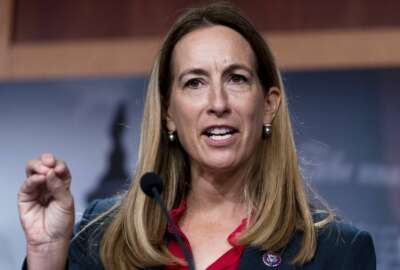Federal government saw less attrition in fiscal 2023
The government saw less staff attrition in fiscal 2023 but some demographic groups are still showing higher rates of quitting than others.
- The government saw less staff attrition in fiscal 2023, but some demographic groups are still showing higher rates of quitting than others. Women and young people chose to leave their federal jobs at higher-than-average rates in 2023. The data analysis from the Partnership for Public Service shows where agencies may want to focus more of their recruitment efforts in the next few years. For instance, employees under 30 years old quit at a rate of 12% last year, while feds in their 40s left government at just a 4% rate. The Partnership said that’s particularly important as employees under 30 already represent a very small portion of the government’s workforce — under 8%.(Quits and retirements in the federal workforce - Partnership for Public Service)
- The National Treasury Employees Union is calling for more support for Customs and Border Protection staff after a recent workload surge. NTEU, which represents CBP officers, said Congress must provide funding for the agency to significantly ramp up hiring. According to a CBP staffing model, the agency needs about 10,000 more employees to effectively address that growing workload. The White House’s recent efforts to crack down on drug trafficking is a step in the right direction to support CBP officers, the union says. But resources from Congress are necessary to make long-term changes. (NTEU applauds crackdown on illegal shipping practices, calls for more staffing - National Treasury Employees Union)
- The federal government will start enforcing REAL ID Act requirements next May. But a newly proposed rule would give agencies the flexibility to phase in those requirements over a two-year period. The Transportation Security Administration said a phased approach to REAL ID would limit the impact on agency operations and reduce negative public feedback. The REAL ID Act sets minimum standards for driver's licenses and identification cards that can be accepted by federal agencies. TSA is taking comments on its proposed rule through Oct. 15th. (Phased approach for card-based enforcement - Federal Register)
- NITAAC and NASA SEWP program offices are open extended hours over the last few weeks of the federal fiscal year to help agency contracting officers put expiring funds on contract. The NIH IT Acquisition and Assessment Center or NITAAC is open until 8 pm on weekdays and will open during the weekends of Sept. 21 and 22 and 28 and 29 from 8 am to 4 pm. NASA SEWP also will remain open until 8 pm on weekdays and offer Saturday hours Sept. 21st and 28th. Both NITAAC and SEWP will be open until midnight on Sept. 30, the last day of the fiscal 2024.(Assisted acquisition offices extend hours for federal buyers - NITAC and NASA SEWP)
- Agencies applying for extra funding for IT modernization have updated requirements. The Technology Modernization Fund board is now expecting agencies to payback at least 50 percent of their loans, but a proposal with a 100% payback plan would be more competitive to earn funding. The board's new criteria for what makes a competitive proposal outlines new requirements in seven categories ranging from the payback model to the expected return on investment to the capacity to deliver. The TMF board updated its criteria for what makes a competitive proposal as the amount of funding has been dwindling. Congress provided no new funding for fiscal 2024 and the House and Senate are split over providing new funding for next year. (TMF selection criteria - TMF Board)
- The U.S. military is struggling to fill the ranks of its medical corps. The Defense Department spends hundreds of millions of dollars annually on training and retaining its physicians, but the rate of recruitment is not keeping up with the number of personnel leaving the service. Researchers from RAND said placing active-duty Army doctors in civilian hospitals where they earn civilian salaries could help the service retain enough physicians to meet its needs. Military doctors splitting their time between an Army hospital and a civilian hospital within the same week could also help the retention rate. Researchers said these solutions are not quick fixes, but they are “sufficient advantages to these courses of action that make them worth examining.”(Army faces a shortage of physicians - Federal News Network)
- The Defense Department will offer health care flexible spending accounts to its service members for the first time through a special enrollment period in March 2025. It will allow service members to set aside up to $3,200 of their pre-tax earnings to cover out-of-pocket health care expenses, including co-payments, contact lenses, glasses, dental care, and annual deductibles. The initiative is one of several efforts Defense Secretary Lloyd Austin announced last to improve the quality of life of service members and their families. (DoD to offer health care flexible spending accounts - Department of Defense)
- The Cybersecurity and Infrastructure Security Agency said critical infrastructure is susceptible to basic cyber threats. What’s the most successful way to hack into U.S. critical infrastructure? Stolen user accounts, email phishing and cracked passwords are at the top of the list. That’s according to analysis from CISA’s latest round of vulnerability assessments. The cyber agency conducted 143 assessments across multiple sectors last year. CISA assessment teams copied many of the tactics used by China-linked hackers like Volt Typhoon. U.S. officials warn that Volt Typhoon and other hacking groups have been targeting sectors like power, water and communications. (CISA review: 'Low hanging' cyber lapses plague critical infrastructure - Federal News Network)
Copyright © 2025 Federal News Network. All rights reserved. This website is not intended for users located within the European Economic Area.
Michele Sandiford
Michele Sandiford is a digital editor at Federal News Network.






